Engineering Practices Laboratory
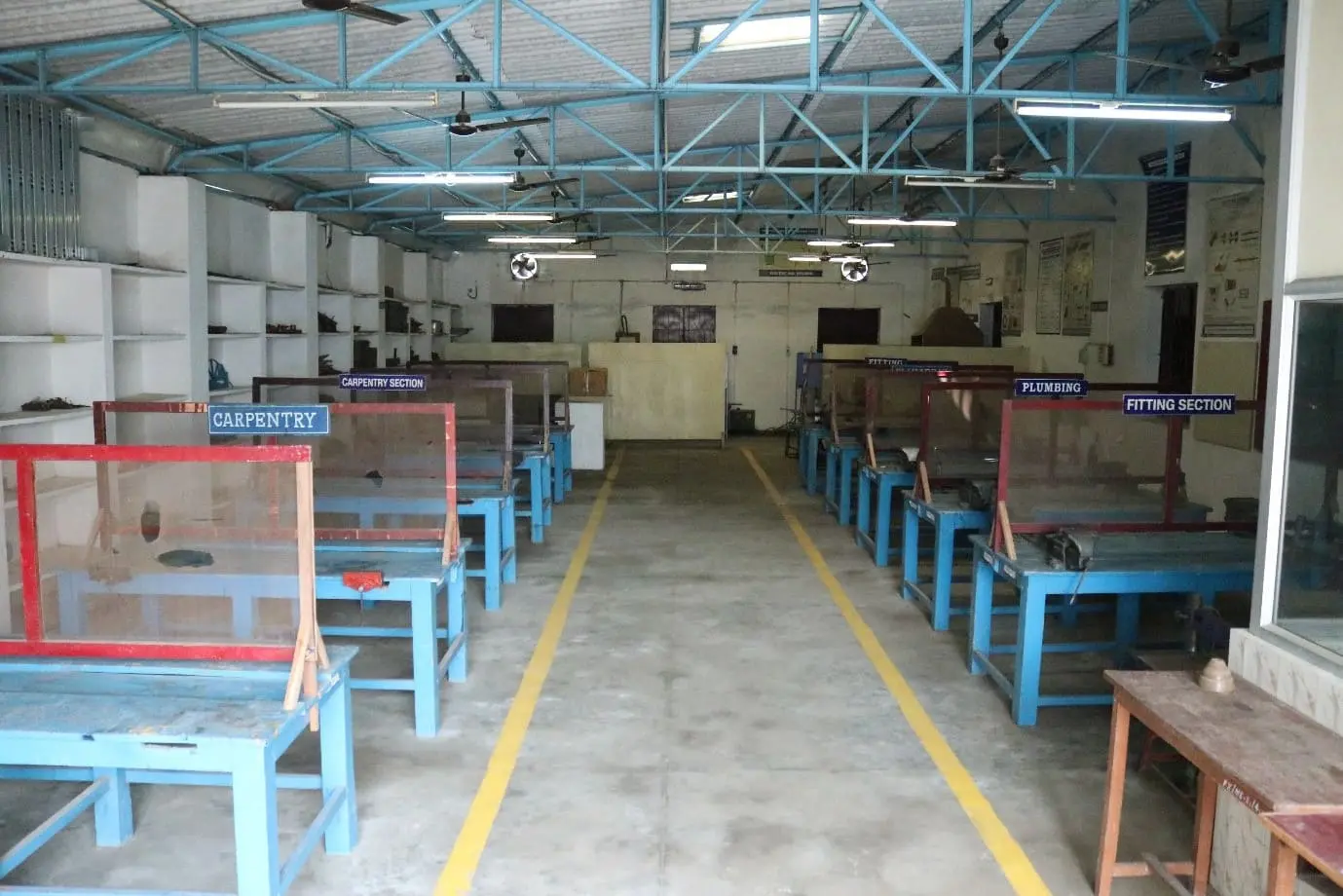
Engineering students should participate in the workshop practise as they begin their first year of study. The carpentry, fitting, welding, plumbing, and sheet metal stations of the engineering in practises lab are available. Students will gain hands-on experience manufacturing carpentry components, using welding equipment to join structures, working with sheet metal, doing basic fitting procedures, and learning plumbing.
Manufacturing Technology Laboratory I (Lathe Shop)
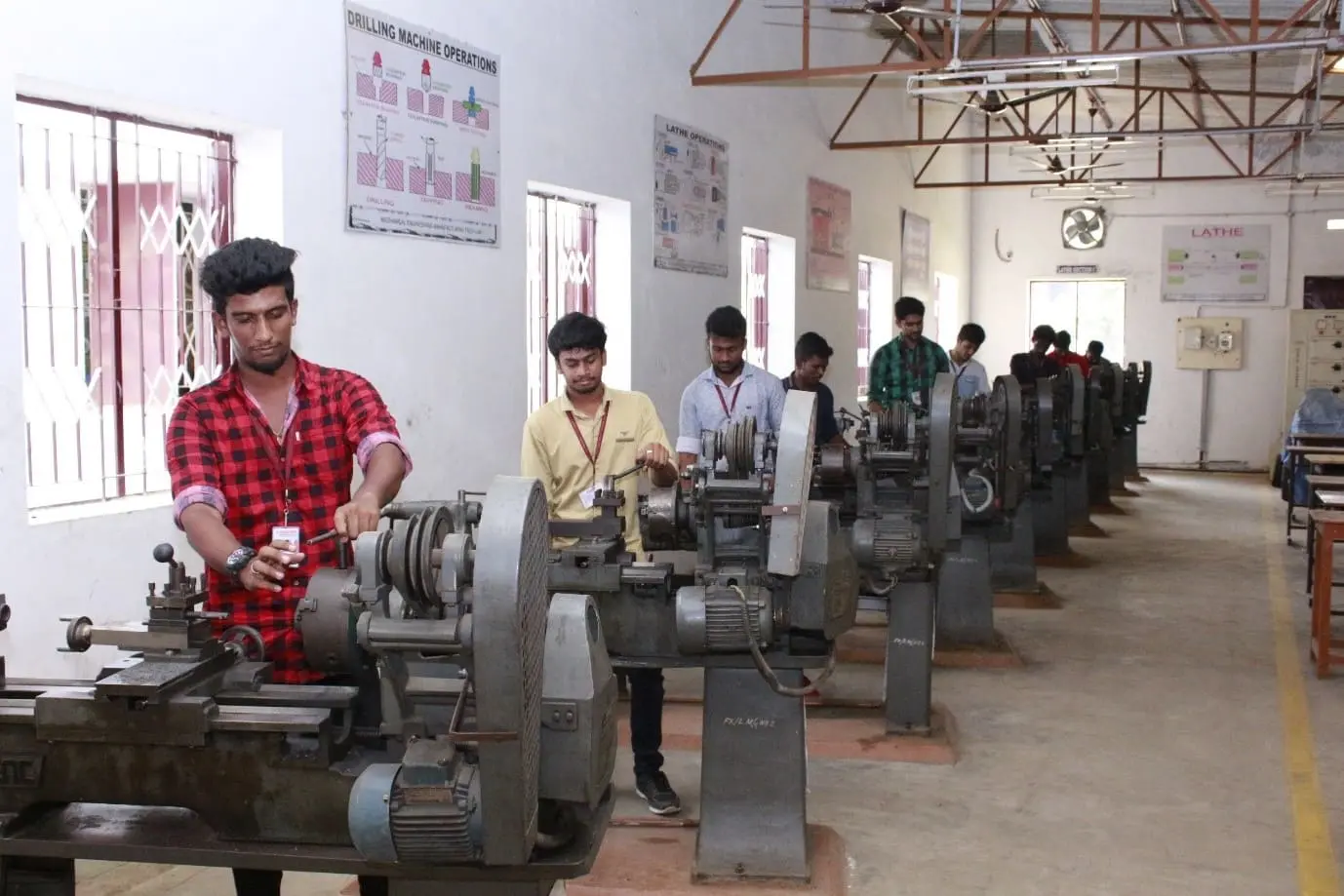
The lathes, Shapers, Slotters, Bench grinders, and Radial drilling machines are all part of the manufacturing technology lab I. By machining with the right relative motions of the tool work pair, a metal rod with an irregular shape, size, and surface is transformed into a finished rod with the desired dimension and surface. This lab enables the students to gain hands-on experience with a variety of operations that may be carried out on lathes, shaping machines, drilling machines, milling machines, etc., and to acquire the practical skills needed in core industries.
Manufacturing Technology Laboratory II (Special Machines)
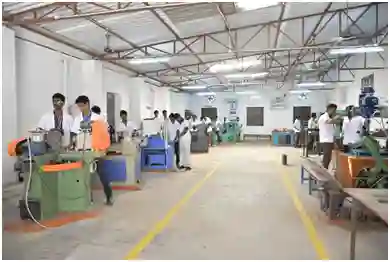
The manufacturing technology lab-II helps students learn about and put their numerous machining procedures to practise. Gear hobbing, gear shaping, centerless grinding, cylindrical grinding, surface grinding, horizontal and vertical milling machines, capstan-turret lathes, etc. are only a few examples. This laboratory assists the students in their study of and learning of many fundamental machining processes in special purpose machines and their applications in the production of components in industry.
Strength of Materials Laboratory
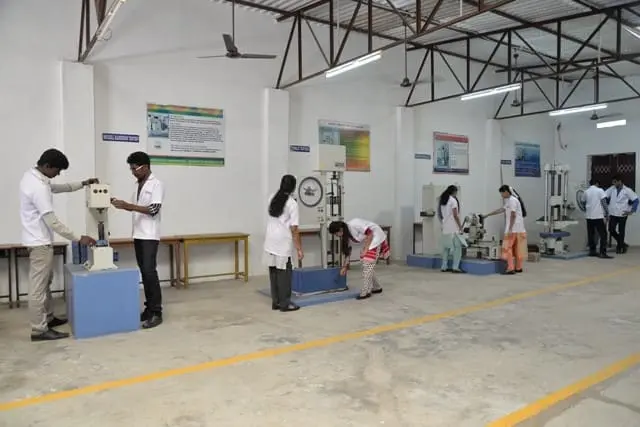
Strength of materials Laboratory equipment includes a universal testing machine with a double shear attachment, a torsion testing machine, an impact testing machine, a Brinell testing machine, a Rockwell testing machine, a spring testing machine of tensile and compressive loads, metrological microscopes, and a muffle furnace. Students learn to examine the mechanical characteristics of materials under various loading conditions and perform compression, deformation, and tension torsion test results on solid materials.
Thermal Engineering Laboratory
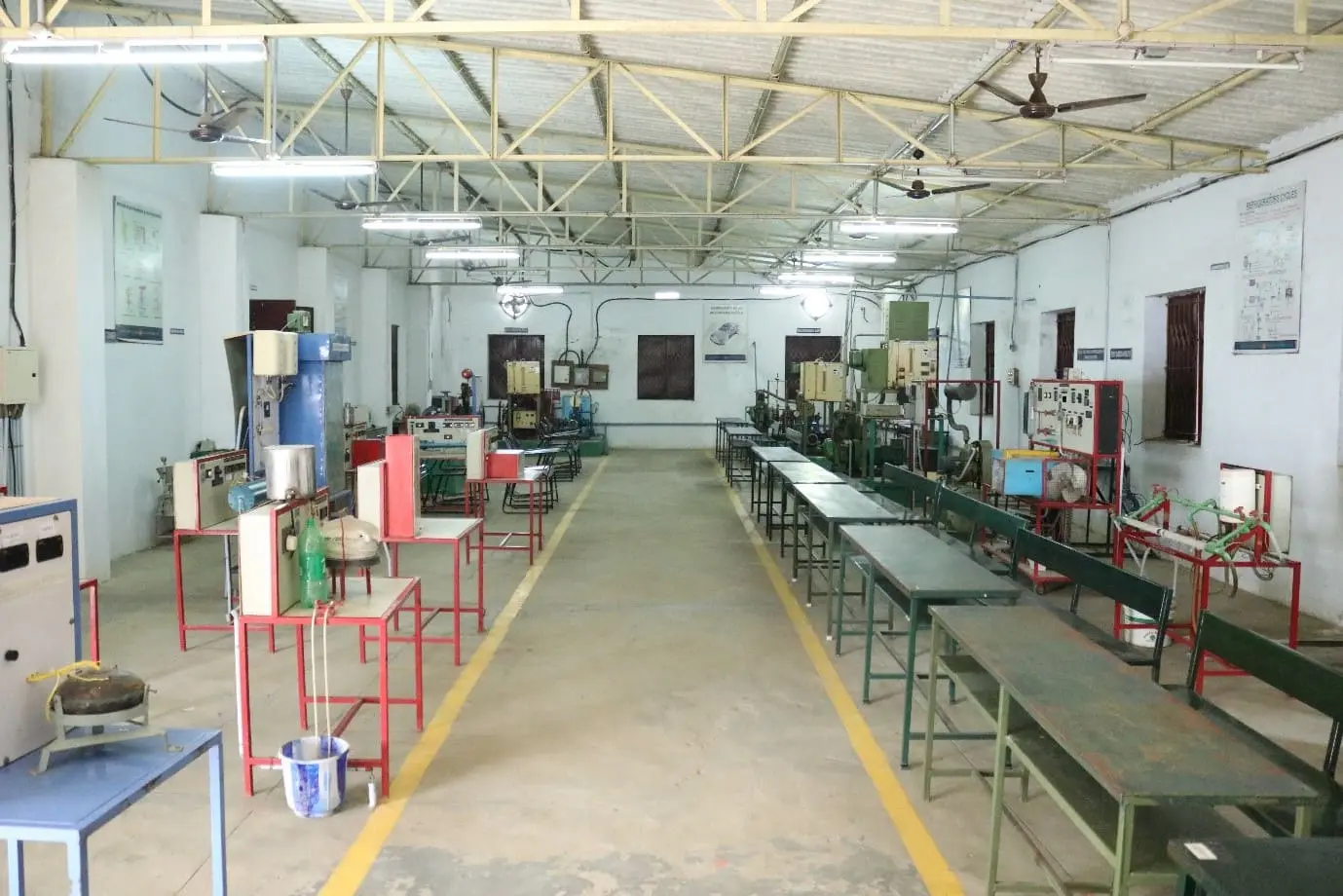
In this lab, students will have the chance to learn about the operation of IC Engines (both SI and CI engines), performance, and characteristics in terms of heat balancing, economical speed fluctuations, and air fuel ratio influence on the engine influence. The tools and machinery used to collect experimental data include cut models of 4 stroke diesel engines, 2 stroke petrol engines, 4 stroke and 2 stroke petrol engines that need to meet specifications, multi-cylinder SI engines, and single cylinder diesel engines for performance and speed tests that are suitable for tests on variable compression ratios.
Heat Transfer Laboratory
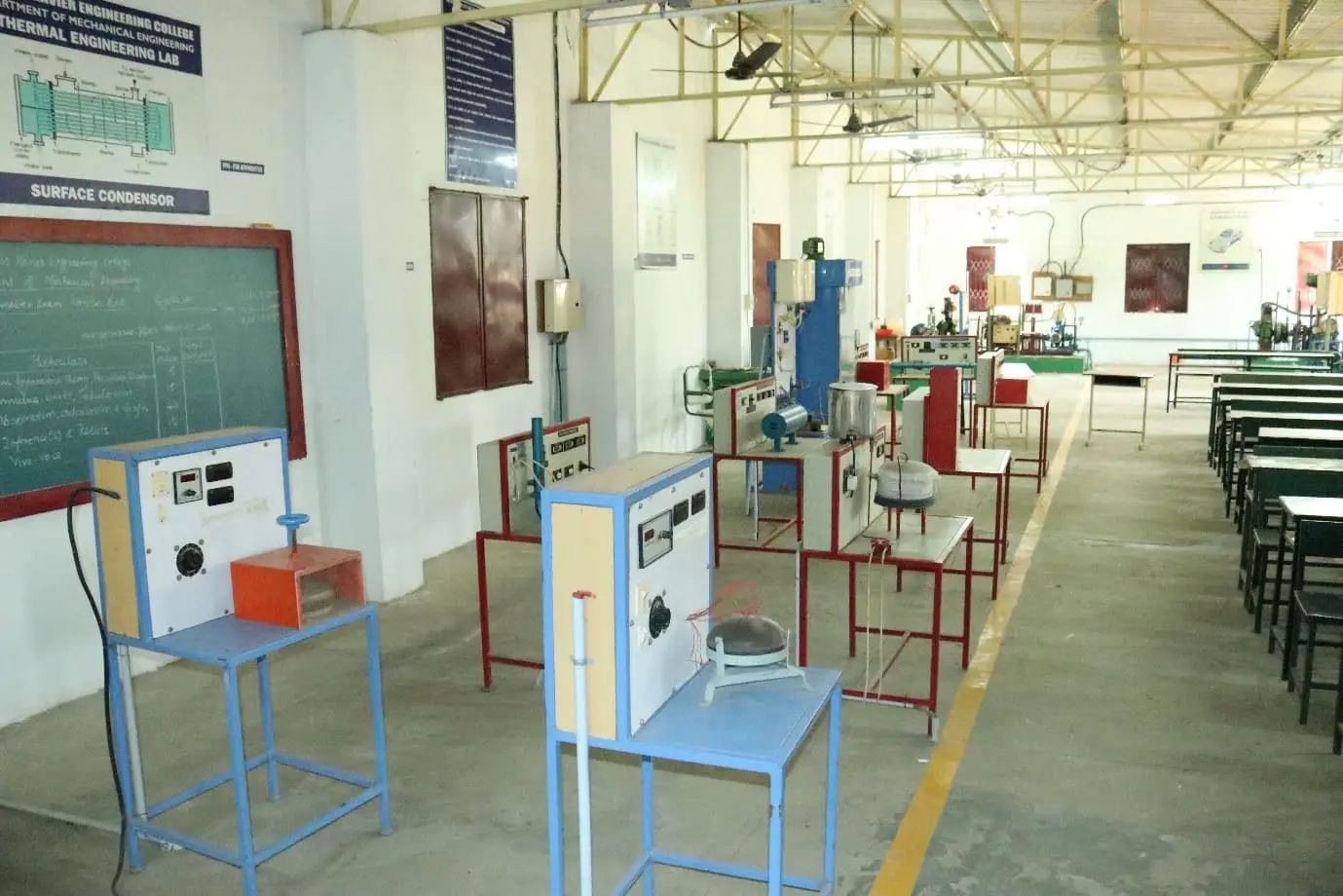
Equipment for heat transfer laboratories is provided to ascertain the thermal conductivity of a metal rod, the convective heat transfer coefficient for free and forced convection and correlate with theoretical values, the effective thermal resistance in composite slabs and efficiency in pin-fin, the surface emissivity of a test plate, and to calculate the study's temperature distribution and transient heat conduction through plane walls. In order to estimate the relevant coefficient and analyse the effectiveness of refrigeration systems, students can examine the heat transfer phenomena with the aid of a laboratory.
Kinematics and Dynamics Laboratory
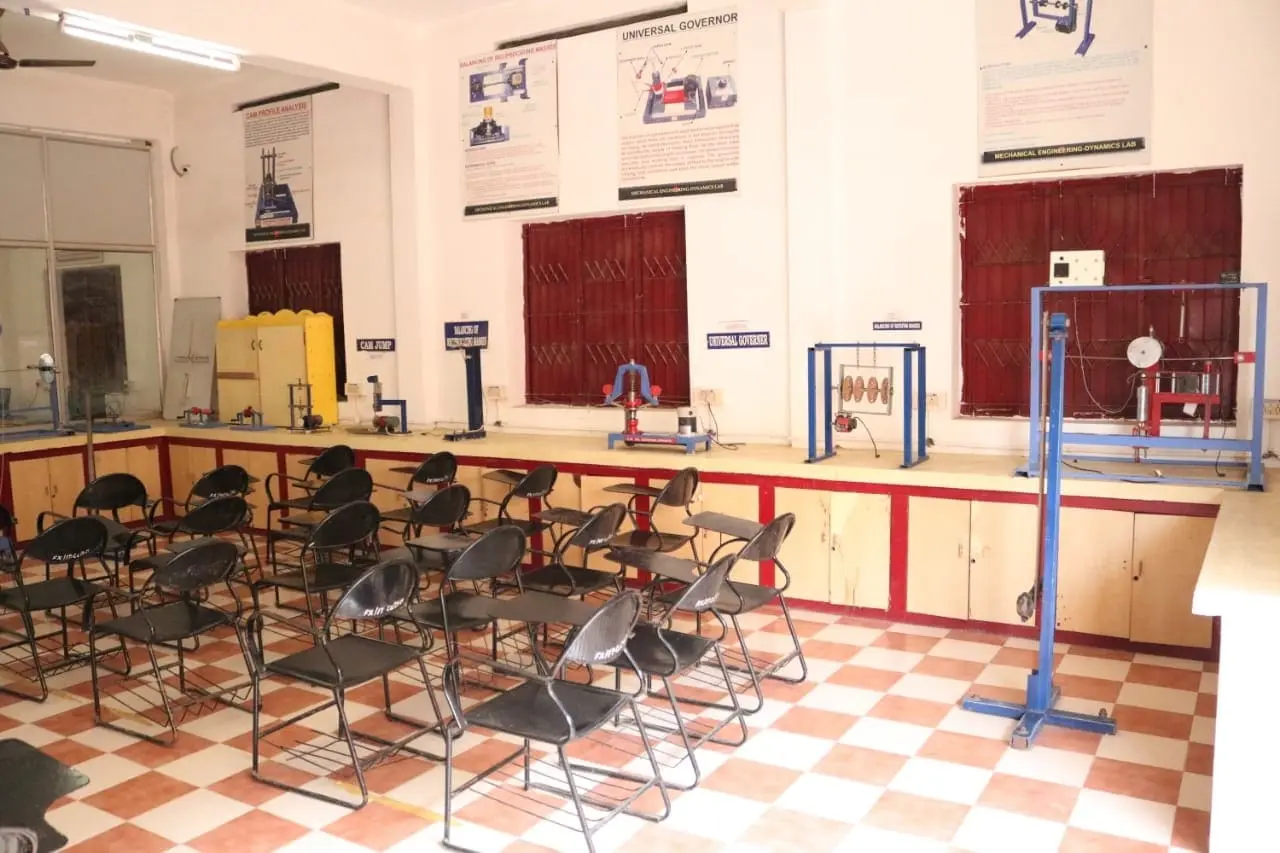
The Kinematics and Dynamics lab offers the students to understand machine dynamics. The working models of simple mechanisms like gears, cams and followers are very much useful to understand Basic mechanisms for students. The objective of this lab is to impart practical knowledge on design and analysis of mechanisms in the machine tools.
Metrology and Measurement Laboratory.
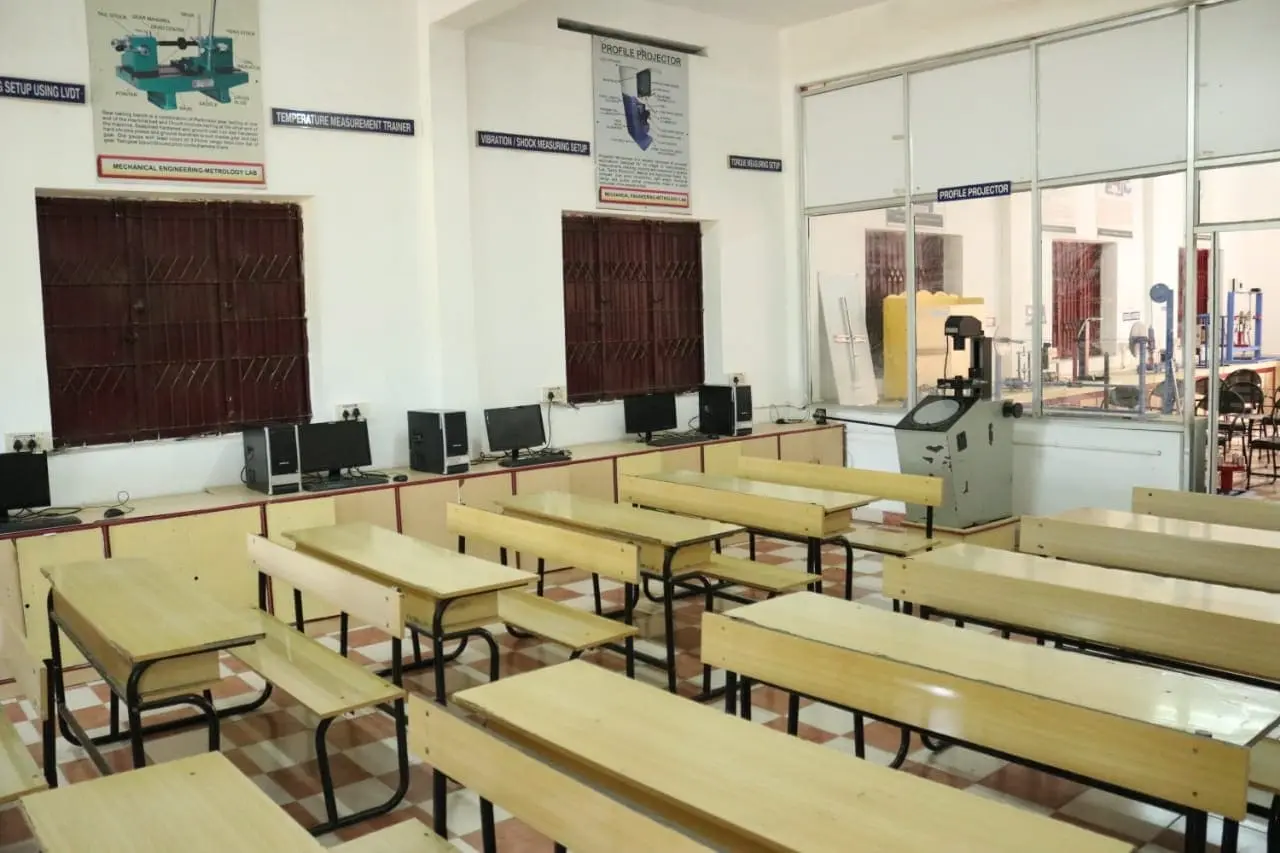
The metrology and measurement capabilities include measuring tools like the micrometer, the Vernier calliper, the Vernier height gauge, the Vernier depth gauge, the slip gauge set, the gear tooth Vernier, the sin bar, the floating carriage micro metre, the profile projector/toolmakers microscope, the autocollimator, the temperature measuring setup, the force measuring setup, the mechanical/electrical/pneumatic comparator, the torque measuring setup, the coordinate measuring machine, and the surface finish measuring equipment. Students will have the chance to use several measurement tools that are frequently used in industry for quality inspection.
CAD Laboratory
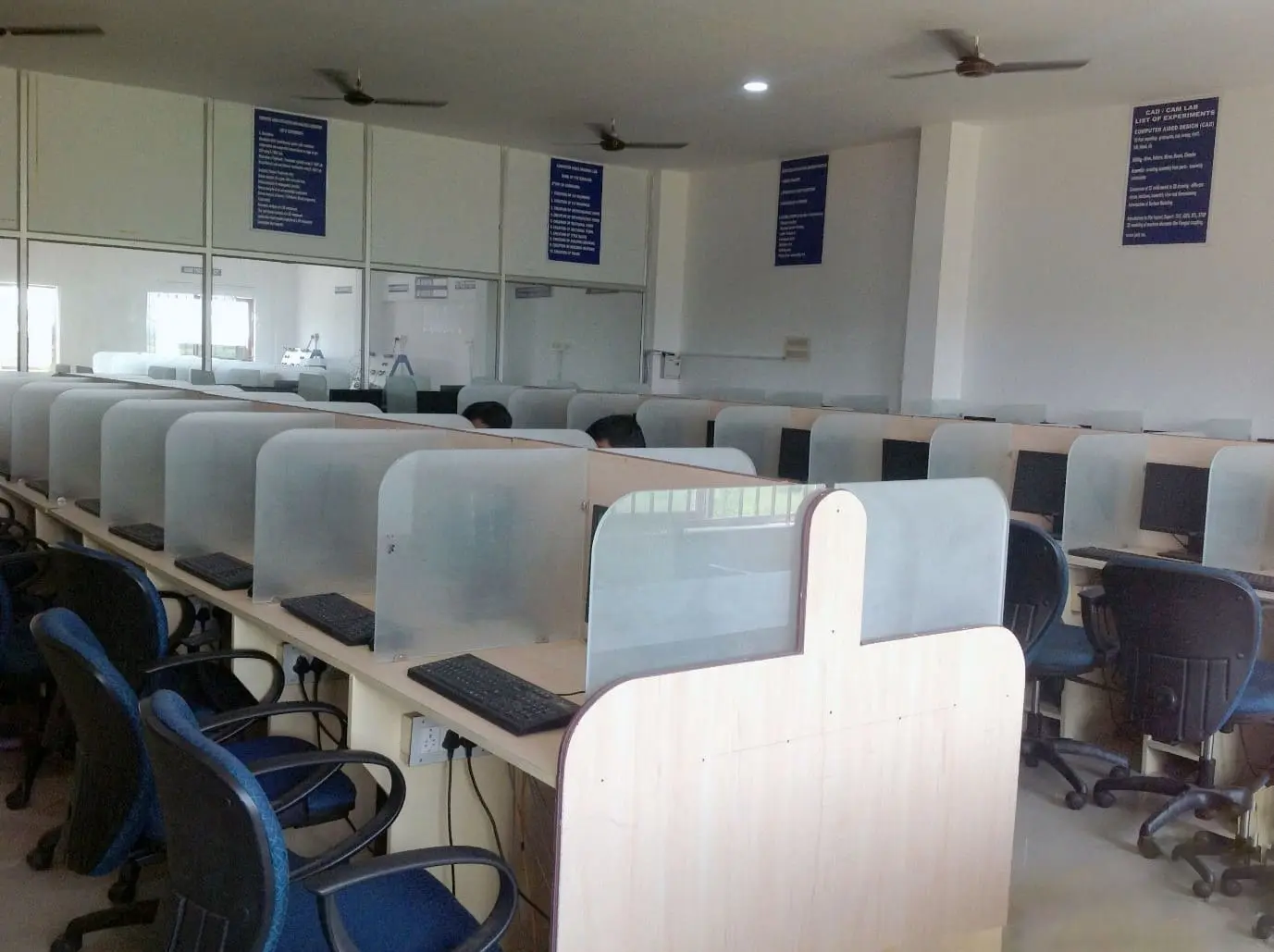
The use of CAD (computer-aided design) enables the creation of conceptual designs and layouts, design details and calculations, 3D models, drawings, and interfaces with analytical, marketing, production, and end-user personnel. AutoCAD, SolidEdge, and NX Nastran are available in the CAD lab. This lab introduces students to various simulation and analysis tool applications as well as practical experience using 2D drafting and 3D modelling software systems.
CAM Laboratory
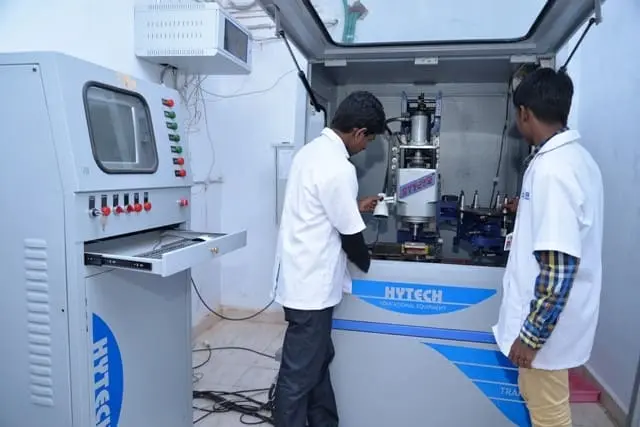
The incorporation of software and computer-controlled equipment to automate a manufacturing process is known as computer aided manufacturing (CAM). The students can learn about the characteristics of CNC machines in this lab and get exposure to contemporary control systems. This lab is equipped with a CNC lathe, a CNC vertical machining centre, and top-of-the-line CAD/CAM manufacturing modelling software. For CNC mills and lathes, simulation CAM software is available.
Mechatronics Laboratory
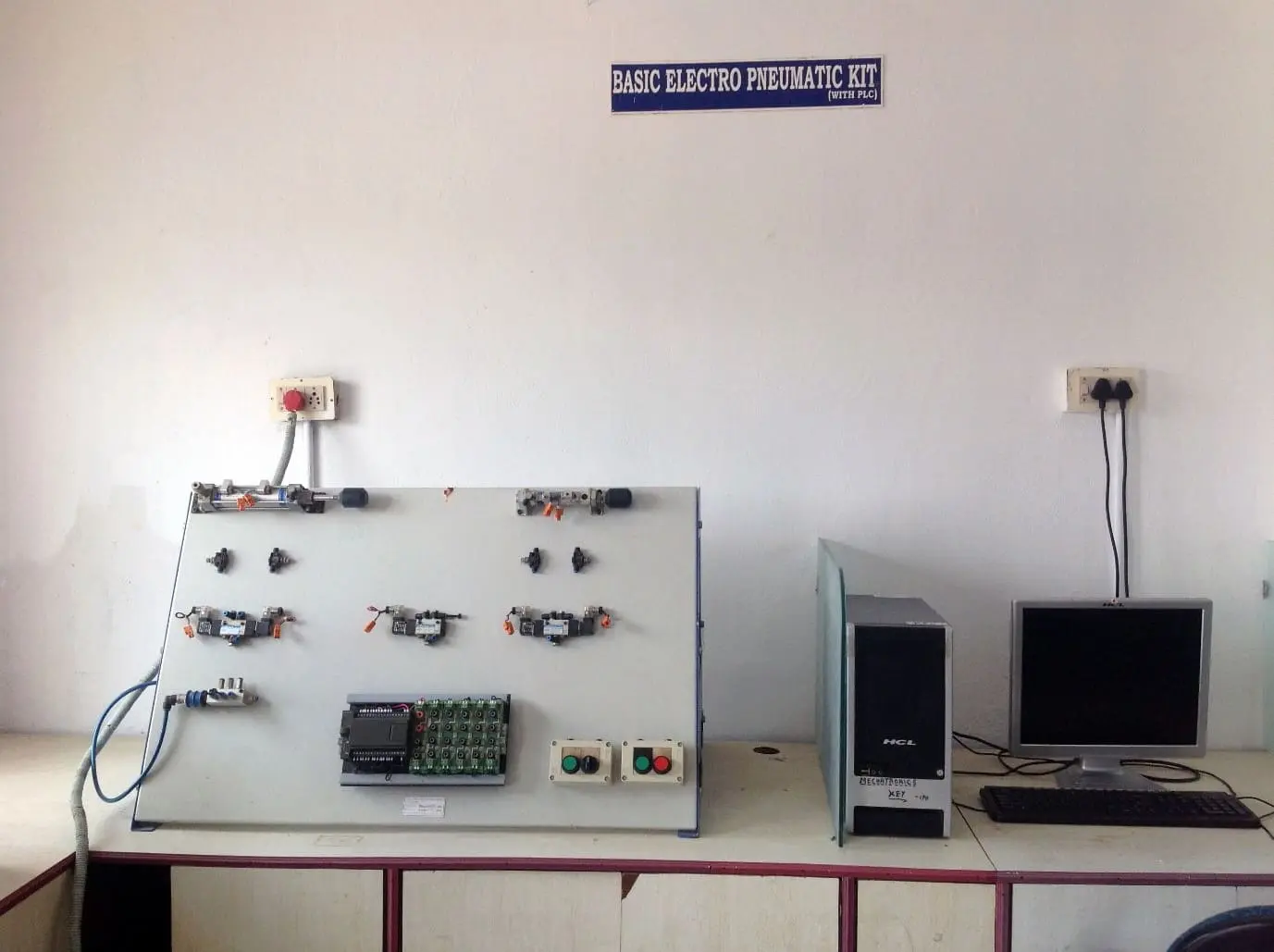
Automation plays a major role in industry for making defect free products with improved productivity. The objective of this lab is to familiarize in fluid power automation and different components of Hydraulics, pneumatics, electro hydraulic / electro pneumatic and PLC based systems. The virtual simulation experiments are based on electro pneumatic, electro hydraulic and PLC based systems. Students may do experiments using advanced controllers for image processing in this lab. PIC microprocessors or Siemens PLCs can be used to develop and programme embedded systems.
Industrial Safety Lab
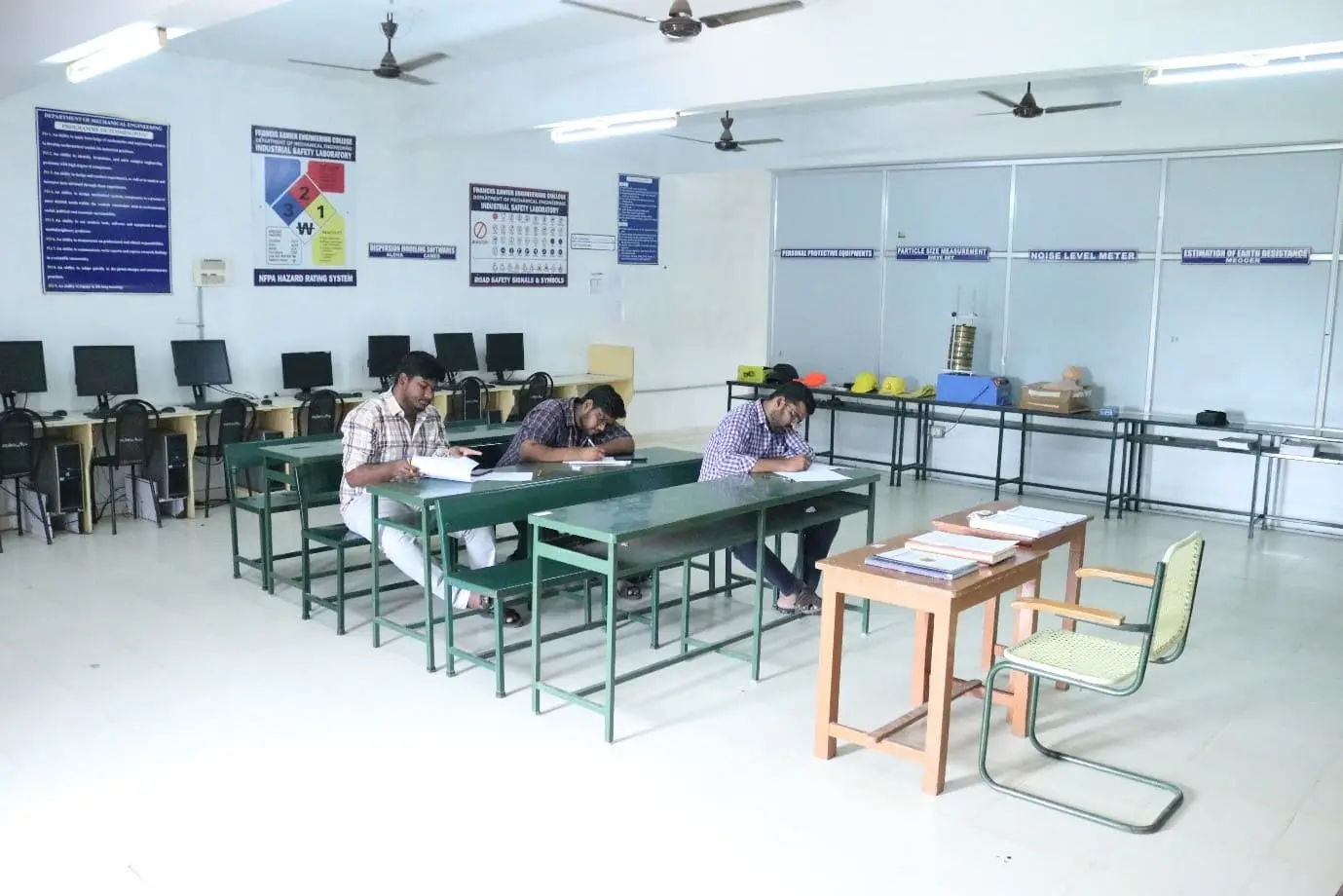
In this laboratory, students will have the opportunity to study the working principle, performance and characteristics of testing equipments and materials. Students can make the readings of noise level in various places, illumination of light under any conditions, measure the particle sizes. They can learn electrical safety equipment’s also like Megger, Earth continuity tester. The student performs required tests, analyze subsequent data.
The materials and equipment used to determine experimental data include Impact test, Friction test of a specific material. Students can able to prepare case study about Personnel protective equipment’s, Fire Extinguishers and prepare a detailed analysis.
Design and Analysis Lab
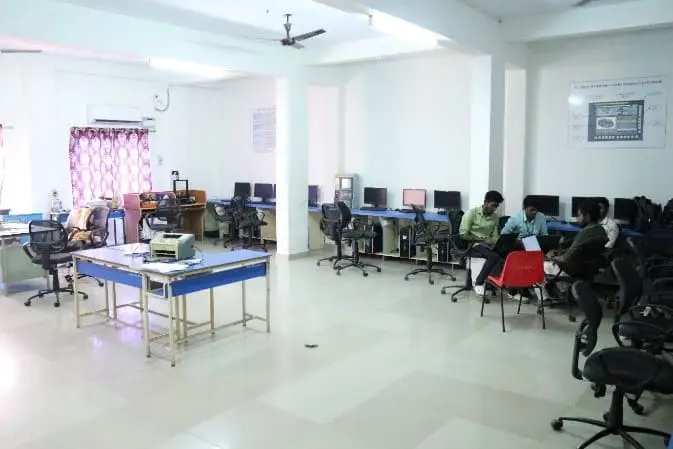
The Special lab of Design and Analysis (SDA) is to create and manage a collaborative mechanical CAD training with industries that Includes
- Competency development among students and faculty
- Value outreach and leadership in professional development
- Integrates CAD practice within the institution across academic disciplines
- Actively engages in providing solutions to challenges facing by society and industries
Features:
- To impart focused training in CAD/CAE aligned to the Engineering Industries.
- To upgrade the Conceptualizing, Engineering and Designing skills of engineering students to a Professional Level.
- To address the need of the design industry by making available a talent pool and connect them for placements from renowned companies
- To equip students with deep knowledge & provide hands-on experience, so that they can excel in their career.
- To offer a wide range of cutting-edge technologies which are meant for future engineers and professionals.
- To develop external collaborations like Institute-Industry collaboration, Institute-Institute collaboration, Institute- Laboratory Collaboration.
- To enhance the technical skill of students of Mechanical and other engineering discipline students a who are looking for Career boosting industrial training from renowned companies.
Innovation and Product Development Laboratory
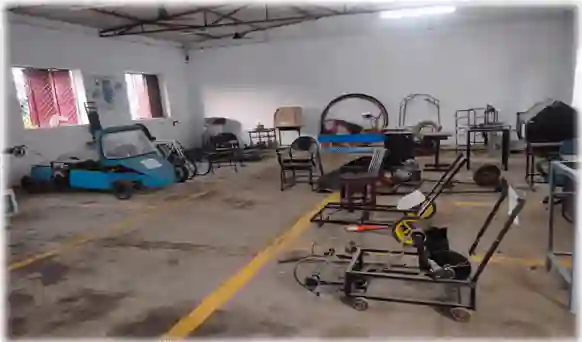
The goal of the innovation and product development laboratory is to give aspiring engineers innovative and challenging opportunities by involving them in contests at the national level and new product creation. In this project-based learning environment, students can obtain expertise in identifying and resolving design and functional difficulties. A well-focused education will help and guide a developing engineer into a successful manufacturing profession if they are motivated to learn. Students will feel more invested in their roles if there is a positive work environment.